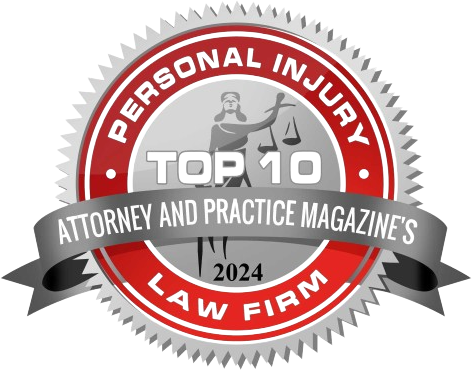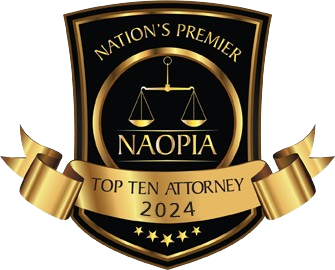

Norfolk Child Custody Lawyer
Navigating through a child custody case can feel overwhelming and deeply personal. As experienced Norfolk child custody lawyers, Montagna Law understands the emotional rollercoaster that parents go through during this challenging time.
The primary focus of any custody battle is, and should always be, the well-being and best interests of the children involved. This guide shares insights into the child custody process in Norfolk, helps you understand your rights, provides an overview of Virginia’s legal framework, and outlines steps you can take to protect yourself and your children.
Let’s explore together how you can approach this difficult situation with the best interests of your children at heart. Contact our law office at 877-622-8100 to get the conversation started about how getting legal representation may be a good option to receive the help you need to build a strong child custody case.
Call (877) 622-8100 or complete the online contact form to request a free consultation.
Put our decades of experience on your side.
-
If you’re looking for someone who’s professional, attentive, serious, caring, and negotiable than Mr. Anthony Montagna is who you need. He understood his assignment and delivered well especially being with what I was looking at in my case. I want …– Tiara S.
-
I don’t know how he does it, but this man is a monster in the courtroom. I’ll admit I had fears of the outcome of my case, but when I was with Mr. Montagna in front of a judge. My confidence started to raise. Extremely professional and how he hand…– BD P.
-
Honestly , Mr. Montagna treats like you are his family the way he cares, he takes care of his people , I was doing triple digit speed on a 60 and lord I thought it was over for me in that courtroom , he’s a genius because I literally got away with…– Justin
-
I have been a client of Montagna Law since 2014. Because the customer service is exceptional, I have established a rapport with everyone in the office. As a customer for 8 years, it is noted that this firm goes above and beyond for the clients.– Eric E.
-
Montagna Law are wonderful attorneys. I was diagnosed with stage 4 lung cancer and they assisted me from day one when I contacted them. I highly recommend their services! Thanks guy’s and gal’s for your services!– Kevin B
How Does Child Custody Work in Norfolk, Virginia?
By definition, child custody in the Commonwealth of Virginia is the “care, control, and maintenance” of a child. Generally speaking, a Norfolk court will presume both parents to be “natural and proper” custodians. Under certain circumstances, a court will award child custody to one parent or another party.
In Virginia, the Juvenile and Domestic Relations District Court handles child custody cases and makes decisions. In cases of dispute or other circumstances where a parent may be unfit to take responsibility for their child, the court will:
- Hold hearings to gather evidence in a child custody case
- Determine the party who will assume child custody
- Set a visitation schedule for the noncustodial parent and child to spend time if an agreement cannot be made by custodial and noncustodial parties
- Put an order of child support into place and calculate the amount to be paid based on a set formula
Virginia’s Juvenile and Domestic Relations District Court makes decisions by giving primary consideration to what is in the best interest of the child when it comes to custody, visitation, and support.
What Kinds of Child Custody Does Virginia Have?

When you pursue child custody in Virginia, there are a few different types of outcomes a court will legally put into place at the conclusion of your custody case. Here are the three primary custody structures awarded in a Virginia court.
- Sole Custody: This is when a court decides one parent should have physical custody of a minor child and take primary responsibility for their everyday care. This parent has the authority to make all the daily decisions about their child’s life.
- Joint Physical Custody: In this scenario, both parents will share the physical custodial care of their child. The child may shift back and forth between parental households. Or a court may decide the child stays in the familial home and, during their time to assume custody, each parent will move back into the home (while maintaining their own separate residences).
- Joint Legal Custody: In a joint legal custody situation, a court awards one parent physical custody, but both parents share equal authority to make important decisions regarding the upbringing and care of their child.
In cases of sole custody, the court often recommends the custodial parent have “meaningful discussion” with the noncustodial parent regarding essential decisions relating to their child(ren). However, ultimately, the custodial parent has the final say.
How Norfolk Judges Determine Child Custody
Every child custody case comes in front of a judge who will look at specific elements before making a final decision. In accordance with Virginia Code § 20-124.3, a judge will consider the following:
- Age of the child
- Physical and mental condition of the child, with consideration of the child’s developmental needs
- Age of each parent
- Physical and mental condition of both parents
- Relationships existing between each parent and child
- Role each parent plays in the child’s life and will play in the future regarding upbringing and care
- How parents interact with one another and if they will actively support their child’s contact with the other parent (or if they’ll deny support for a relationship)
- Child’s needs, including important relationships, including but not limited to siblings, peers, and extended family
- Preference of the child, if they are old enough to make reasonable decisions and express preferences
- If any history of domestic, family, or sexual abuse exists
The court will consider any and all other factors that may positively or negatively impact what is in the best interest of the child relating to the custody case. This includes any “pendente lite” orders pursuant to Virginia Code § 20-103.
What is a Guardian ad Litem?
A guardian ad litem (GAL) means “guardian for the suit.” It is under the authority of a Virginia judge to assign a GAL who will assist the court in gathering all relevant circumstances to a child custody case. The GAL has the following responsibilities:
- Provide legal representation for the minor child
- Conduct interviews and investigations relating to the court case
- Provide reports to the court to share their findings and professional opinions
- Participate in court hearings
- Be present in mediation sessions
- Bring balance to the decision-making process
Essentially, the GAL’s role is to provide independent recommendations to the court regarding a child’s best interests. If allegations of abuse or neglect are present, this is a situation where the court will automatically assign a GAL.
How Does a Parent Request a Guardian ad Litem for a Child in a Child Custody Case in Virginia?
A Virginia judge will appoint a guardian ad litem, but parents and/or their child custody attorney can request a GAL be involved in their custody case. Ultimately, the judge makes the final decision if an assignment of a GAL is warranted. It is important to understand that a GAL’s responsibility is to act in the best interest of a child. Their involvement may or may not work in favor of your case.
Child Custody Issues For Norfolk Military Families

The Hampton Roads area hosts 15 military installations with more than 80,000 active duty personnel serving locally, including the distinguished Naval Station Norfolk.
With Norfolk home to one of the largest populations in a Virginia city, our family law firm works with many military families. Unfortunately, the pressures military families often face, such as deployment and relocation, often lead to family conflicts and child custody disputes.
- Since children cannot accompany their parents on deployments, the military spouse or former spouse often needs temporarily to assume sole custody of their children.
- Upon the service member’s return, this can lead to resistance to return to shared custody by the parent granted temporary sole custody.
- Military spouses often face challenges with their current or former spouse’s work schedules when it comes to providing continuity for their children.
- Single parents and dual-military families need a plan for the care of their children while on deployment.
Montagna Law provides full service to our military families to help them cope with the stresses and find fair resolutions to family conflicts.
Why Work With Montagna Law
Facing a family law case regarding child custody usually comes with feelings of fear and uncertainty. You want what is best for your children.
Montagna Law offers decades of experience. In 2023, our law firm received the honor of being listed in Attorney and Practice Magazine’s Top 10 Family Law Firms in Virginia.
When you work with Montagna Law, you can rest assured our attorneys are well-versed in Virginia family law and will work closely with you throughout your case. The attorney-client relationship is very important to us, and we pride ourselves on providing each of our clients with trustworthy and sound legal advice.
Testimonial
“I love that my concerns are ALWAYS addressed, and my phone calls are returned. Great staff!!” -Sickler J.
We Fight For Your Child’s Future
Montagna Law has years of experience in Hampton Roads. Remember, you are not alone in this difficult journey. Whenever you need a family law attorney, our Norfolk law firm is here for you. We are dedicated to serving Norfolk and the entire Hampton Roads area to find resolution to their family law matters, including but not limited to:
- Child custody
- Child visitation
- Child support issues
- Divorce cases
- Domestic violence
- Special circumstances relating to military family conflicts
- Other family law matters
The legal complexities might seem daunting, but with guidance and support from an experienced Norfolk child custody lawyer, you can navigate this path with confidence and clarity. Contact our family law firm at 877-622-8100 or, if you prefer, fill out our online contact form. We are happy to set an appointment for an initial consultation with you in our Norfolk office to discuss your child custody case.
If you have other legal issues, be sure to ask about our other practice areas. Montagna Law offers services for several different legal issues, including personal injury, estate planning, and workers’ compensation. Our law firm proudly serves the entire Hampton Roads area, including Norfolk, Hampton, Virginia Beach, Chesapeake, Portsmouth, Newport News, and Suffolk.
Visit Our Office
Norfolk, Virginia 23510-2408
Frequent Answered Questions
In the event no court order is issued, both parents have equal rights to their minor children. Virginia law recognizes both parents as being equally important to the well-being of a child. However, parents sometimes need to separate, and if this occurs in your household, you will want to establish a custody arrangement right away.
While the terms “legal custody” and “physical custody” may seem interchangeable, each phrase means something very different in the eyes of the law.
Legal custody refers to decision-making responsibilities where minor children are concerned. This includes, but is not limited to, choices regarding education, religion, and medical care and treatment. Many courts will award joint legal custody to both parents unless there are unique circumstances where this would not be in the best interest of the child.
Physical custody relates to which parent the minor child lives and spends the majority of their time. Even if joint legal custody is awarded, one parent may be given physical custody, making them the “custodial” parent. This happens most of the time with the other parent awarded secondary custody. While rarer, a court may also award joint physical custody.
Ultimately, when it comes to legal and/or physical custody decisions, a court will put an emphasis on what is in the best interest of the child.
In Virginia, at the age of 12, a child is considered to be old enough to express preference about which parent they want to move in with. The judge still ultimately decides their residency based on what is in their best interest but will consider the child’s opinion into consideration.
A court may come to the conclusion a parent is unfit. This case is typically heard in two contexts:
- Parents are fighting for custody over their minor children
- A child is removed from a parent’s care by Child Protective Services (CPS)
By law, the definition of an unfit parent exhibits one or more of the following behaviors or attributes:
- Is abusive and/or neglectful
- Commits domestic violence
- Does not set appropriate limits for a child’s age
- Does not understand or handle the needs of their child
- Engages in alcohol or drug abuse
- Mistreats the other parent
- Participates in illegal activities
- Deserts or abandons the child
These, along with other behaviors, are taken into consideration when a court declares a parent to be unfit to raise and care for their child. Also factored in is the parent’s history of previous childcare involvement.
can help you solve your legal problems.








